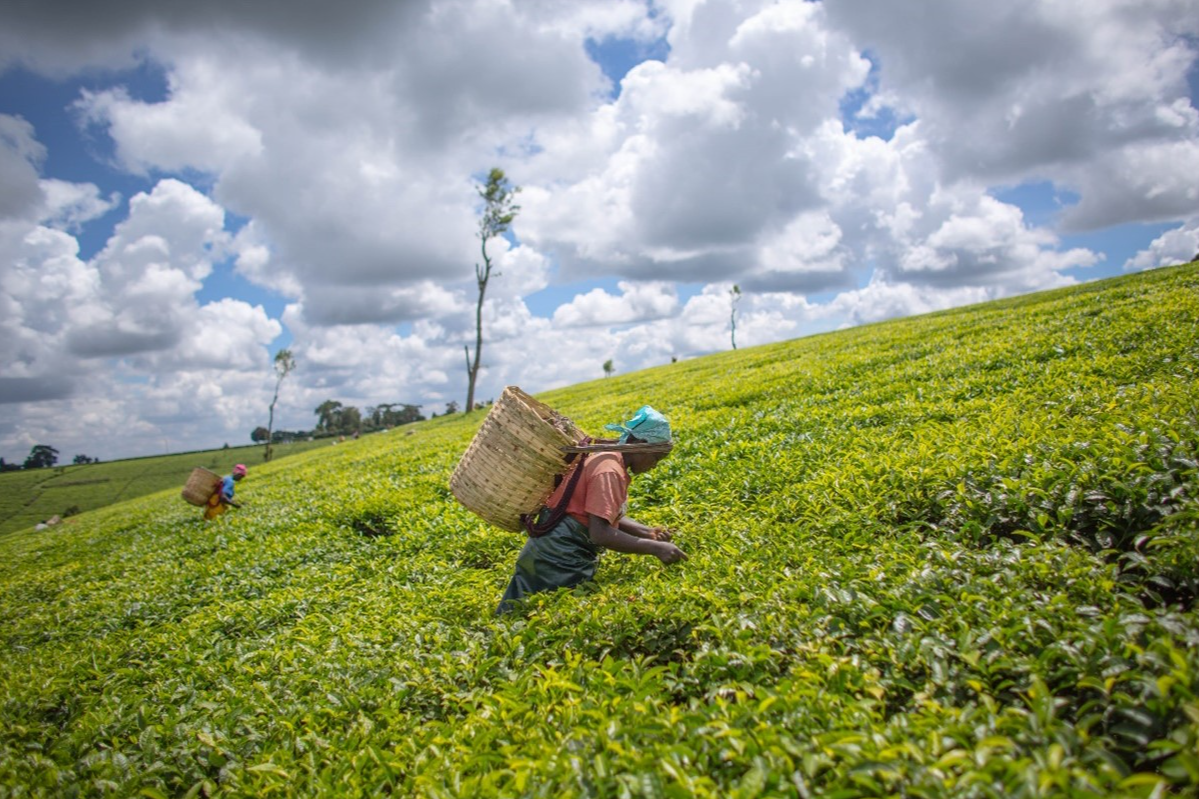
Did you know that tea is the world’s second most consumed drink after water? Well, now you know. The global consumption of tea amounted to about 6.7 billion kilograms in 2022 and it is estimated to reach 7.4 billion kilograms by 2025 according to statista research data.
The initial tea plants in Kenya were introduced in 1903 using seedlings brought from India. Today, Kenya stands as one of the leading tea-producing nations globally, yielding over 240,000 tonnes annually. Tea cultivation in Kenya is managed both by small-scale farmers and extensive estates. The larger plantations are overseen by the Kenya Tea Growers Association and contribute roughly 40% of the country's tea output. Kenya's strategic position near the equator allows for year-round tea cultivation, maintaining consistent tea quality with minimal seasonal fluctuations.
Tea cultivation in Kenya is primarily concentrated in the highlands situated within the West and East of the Rift Valley, spanning altitudes ranging from 1,500 meters to 2,700 meters above sea level. These highlands are dispersed across 19 tea-growing counties, encompassing areas like Nakuru, Narok, Kericho, Bomet, Nyamira, Kisii, Kakamega, Bungoma, Vihiga, Nandi, Elgeyo Marakwet, Trans-Nzoia, Kiambu, Murang’a, Nyeri, Kirinyaga, Embu, Tharaka-Nithi, and Meru.
The region's tea-growing conditions are ideal, characterized by tropical volcanic red soils and favourable weather patterns. Kenya benefits from well-distributed rainfall averaging between 1200 mm to 1400 mm annually, supporting robust tea growth throughout the year. Unlike many other tea-producing countries where production is subject to seasonal variations, Kenya's equatorial location enables consistent tea production year-round, ensuring minimal fluctuations in quantity. This geographical advantage contributes significantly to Kenya's status as a major player in the global tea industry.
The Kenyan economy depends heavily on the tea industry, which also contributes significantly to the country's agriculture sector and foreign exchange profits. With tea making up around 23% of total foreign exchange profits and 2% of the Agricultural Gross Domestic Product (GDP), tea is one of Kenya's top exports. Kenya produces more than 450 million kilos of tea annually, earning approximately Ksh 120 billion from exports and an extra Ksh 22.0 billion from domestic sales.
Millions of Kenyans rely on the tea industry as a major source of income in addition to its economic benefits. About 5.0 million people are supported by tea, both directly and indirectly thus demonstrating its wide-ranging influence across numerous economic sectors. Since some 650,000 tea producers depend on the business for their livelihoods, it is essential to the nation's ability to generate money and jobs in rural areas.
Beyond economic data, the tea industry is important because of its contribution to social stability, rural development, and poverty reduction. The tea industry supports Kenya's population's general socioeconomic well-being by giving smallholder farmers a steady market, income, and employment possibilities. Furthermore, tea is positioned as a pillar of Kenya's economic prosperity and agricultural sustainability due to the industry's resilience and constant performance, which are driven by ideal growing circumstances and worldwide demand.
Despite being the world’s leading exporter of black tea, only a small percentage of the commodity is processed for exports hence denying the country a huge chunk of export inflow as compared to countries like China and Sri Lanka who export valued added tea. To address this, the Kenya Export Promotion and Branding Agency is liaising with the national government and tea stakeholders to improve on value addition. Kenya is also leveraging on the African Continental Free Trade Area (AfCFTA) to diversify her value-added tea export, a move that is not only guaranteed to greatly increase tea exports but also overcome stiff competition from other tea producing nations in Africa.
Kenya Export Promotion and Branding Agency through its Product Market Development and Research and Innovation Directorates is active in diversifying markets for Kenyan Tea away from the traditional buyers like Egypt and Pakistan. Through the Made In Kenya initiative, KEPROBA is aiding potential processed tea exporters with branding and package designs that meet the international standards. The Agency is leveraging on last year’s value-added tea export to Australia to bring more tea exporters on board and to capitalize on the Australian market. Kenyan tea brand ‘Akina’ made history by exporting the first batch of value-added orthodox tea valued at 3.8 million shillings to Australia. The government is keen to increase the export of value added tea from the current 1 percent to 50 percent by 2027 but in order to achieve this goal, all stakeholders in the tea sector must come together and embrace value addition across the sector.
